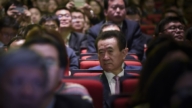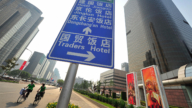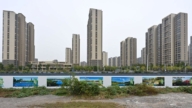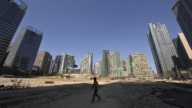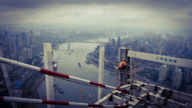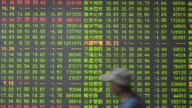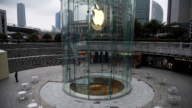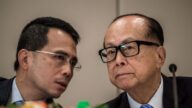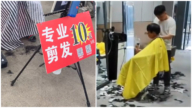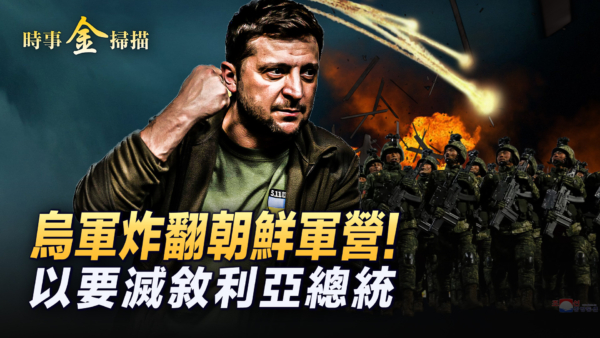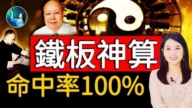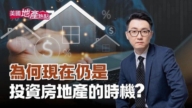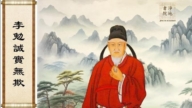【新唐人2014年06月14日讯】中国经济放缓,仍然是全球关注的焦点。日前,世界银行经济学家警告,虽然中国经济今年增长“预计”将达7.6%,但“硬着陆”风险还是存在。经济学家指出,目前中共采取的“微刺激”,可能使经济陷入两难境地,而想要阻止经济下滑,应该把钱分给老百姓个人,增加内需。
据英国广播公司《BBC》中文网报导,世界银行项目主管伯恩斯(Andrew Burns),6月10号在伦敦表示,中国经济“硬着陆”风险仍然存在,虽然中国的经济决策者正试图调整中国经济的增长模式:从出口导向转向内需拉动,但过去两年的经验表明,这个过程中的不协调性被进一步突出。
伯恩斯认为,中国的经济处于“两难”境地。伯恩斯说,为了进行调整,政府需要将钱从企业移到个人,增加个人收入等。不过如果这样做,企业的利润就会受到损失,让他们的还贷能力变弱。
旅美经济评论家马杰森:“不是从企业挪到个人,是从国家挪到个人,中国的问题是国富民穷,一个社会是靠百姓的消费才能最优的配比社会,最优推动经济发展,中国靠政府投资把基础建设搞上去后,接着进一步投资,基础设施的回报就越来越低,变成了一种靠吃补药活着的状态。”
据世界银行的数据,2010年,世界主要发达国家的人均收入,占人均GDP的比重在60%以上,如美国为79.80%,英国为78.10%,法国为61.02%,日本为81.54% 。
旅美经济评论家马杰森指出,中共用庞大的税收把钱聚集到中央的同时,采取极其低廉的社会保障体系,民众的生活得不到良好的照顾,当局再通过控制土地,任意调整土地价格,来攫取民众为购房省下来的钱。马杰森说,在过去十几年,虽然中国的国内生产总值(GDP)表面上在快速增长,但是老百姓的收入,占GDP的比重,却在逐年下降。
北京清华大学经济管理学院教授杨斌:“(中国)国家GDP增长那么多,老百姓收入占的比重,占10%以下,占的非常低,它是收到国库去了,物价高、工资低,手里没钱,怎么消费!消费能力不足经济怎么循环啊?现在已经危机重重了。”
今年中国的经济大幅度放缓,不仅大幅低于预期,还创下4年多来的新低。被纳入所谓“克强指数”的经济指标——发电量,也创下去年5月以来的新低。固定投资、房地产、出口数据以及社会融资,全部远远低于预期。
经济的快速冷却,促使中共再度施以“微刺激”提振经济。中共国务院确定55项工作重点,要求加快重点投资项目前期工作和建设进度,并及时拨付预算资金。
伯恩斯指出,再次刺激投资和转向消费驱动型经济的目标矛盾。
杨斌:“现在我认为下一步是,国家对民营企业降息、降税,对民间工资的增涨关注。”
马杰森:“中国经济问题是中国政治问题的延伸,谁都知道中国问 题的真正解决方案是内需,真正靠老百姓、靠企业的自主,创造下一步经济上一个台阶,但是是不可能的,中共整个经济实际上是靠一系列利益集团把持的,这个利益集团包括中央政府,包括地方政府、包括各大央企、包括其他一些拥有一定政治优惠的部门,这些利益集团它是绝对不可能放弃它现在拥有的利益的。”
北京“清华大学经济管理学院”教授杨斌指出,解决中国的经济问题并不难,只要把钱还给老百姓,让老百姓有钱消费就能解决问题。
评论指出,中共宁愿拿钱搞面子工程、支援非洲,也不愿意还民众钱。据网友估计,“神舟九号”太空船上天,光燃料就花掉600多亿人民币。杨斌说,苏联就是前车之鉴,当年苏联崩溃之前,正是把钱都投在尖端的国防、科技上,最后拖垮了苏联的经济。
采访编辑/刘惠 后制/黎安安
Expert Advice to Avoid Hard Landing in Mainland
Economic Cycle
China’s economic slowdown is still the focus of global attention.
Recently, World Bank economists warned that the hard landing
risk still exists although China’s economic growth is expected
to reach 7.6 percent this year.
The economists point out that micro-stimulation from
the Chinese Communist Party (CCP) may cause a dilemma.
To stop the economic downturn, they should increase domestic
demand by giving money to the people.
According to the BBC Chinese network report,
World Bank project manager Andrew Burns said
on June 10th in London, although China’s economic
policy makers are trying to adjust the economic growth mode
by shifting from export-oriented to domestic demand,
the economic hard landing risk still exists.
Based on past two years’ experience, the incompatibility
in this process is further highlighted.
Burns believes that China is facing a dilemma:
that the government needs to increase personal
income instead of enterprise income
to adjust the economic situation.
However, corporate repayment ability will weaken
and business will suffer losses after adjustment.
US-based economic commentator Ma Jiesen:
“It’s not moved from business or government to individuals.
China is a land of extremes of wealth and poverty.
Society relies on people’s spending to achieve distribution.
This way economic growth can best be realized.
China depends on continuous central investment to boost
infrastructure with diminishing returns.
In the end they have to find another way to survive."
According to World Bank data, in the world’s major developed
countries of 2010, the per capita income accounted for more
than 60% of per capita GDP: it was 79.80% in US; 78.10% in
UK; 61.02% in France; 81.54% in Japan.
Economic commentator Ma Jiesen pointed out that the CCP
centralized finance by heavy taxes and a poor
social security system meaning people’s lives are not
well taken care of.
The authorities recoup people’s saving from house purchase by
arbitrarily adjusting land price.
Although, China’s gross domestic product (GDP)
is growing fast; the people’s income as a proportion of GDP
has declined year by year.
Yang Bin, Economics and Management School Professor
Beijing Tsinghua University: “the people’s income is fairly
low – less than 10% compared to GDP.
The money might be in the national treasury.
How can consumption increase with high prices and low pay?
How can the economic cycle run with a shortage of
consumption capacity?
The crisis is layer after layer now. “
The big slowdown in China’s economy is not only significantly
lower than expected but at a new record low in four years.
Electricity generation included in economic indicators —
the Keqiang Index also hit a new low from last May.
Fixed investment, real estate, export data, and social financing
are all far below expectations.
Fast economic cooling prompted the CCP once again to use
micro-stimulus to boost the economy.
The CCP State Council confirmed 55 key projects.
The state council requested the acceleration of the preparatory
work, construction progress, and timely disbursement
of budgeted funds.
Burns pointed out the goals of investment stimulation and
a shift to a consumption-driven economy are contradictory.
Yang: “I believe it’s correct to lower interest and rates to
private enterprise as a next step.
They should pay attention to increasing people’s wage."
Ma Jiesen:
“China’s economic issue is an extension of the political.
Everyone knows the solution lies in domestic demand which
relies on people and enterprises stepping to a new economic
level autonomously.
However, it is impossible.
China’s economy is dominated by a series of interest
groups including central government, local government,
central enterprises and other sectors with certain
political concessions.
It’s impossible for these interest groups to give up their own interests."
Professor Yang Bin pointed out that it’s not hard to solve
the economic problem as long as money is given back to the
people and let them consume.
It’s commented that the CCP would rather give money to
face-saving projects to support Africa, rather than the people.
It’s estimated to take 60 billion RMB fuel to send No.9 Shenzhou
spacecraft into space.
Yang Bin said :"the Soviet Union is an instructive precedent.
Before the collapse of the Soviet Union, they invested money
in cutting-edge defense and technology which dragged
down the Soviet economy."
Interview/Edit/Liu Hui Post-Production/Li AnAn


